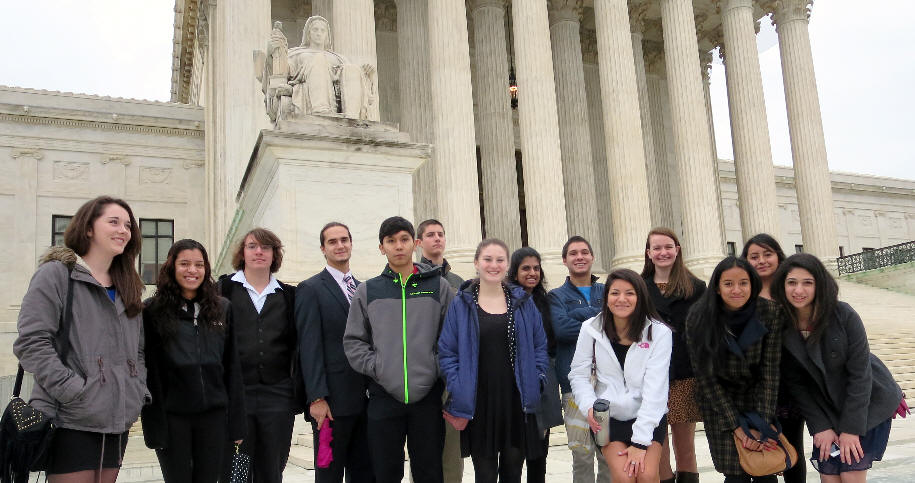
HHS Students Attend Oral Arguments at the Supreme Court

These HHS Government students attended
Executive Benefits Insurance Agency v. Arkison
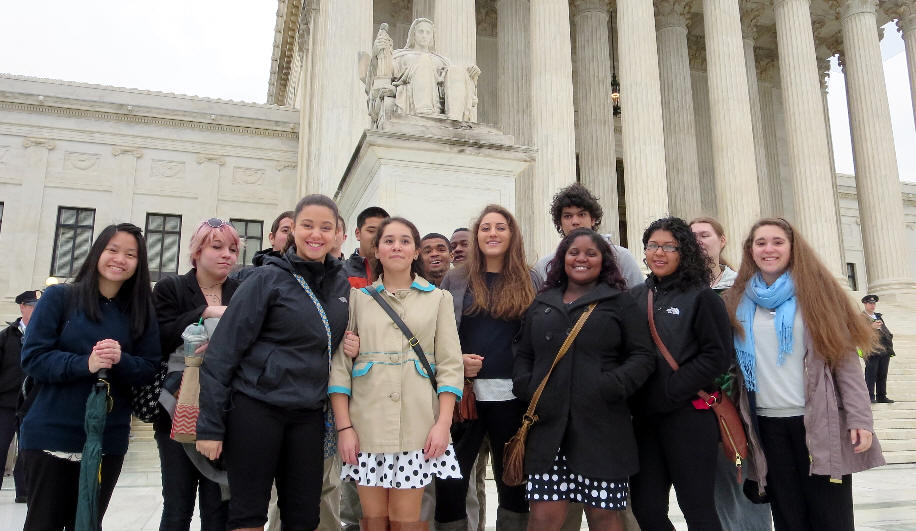
These HHS Government students attended Brant Revocable Trust v. United States case. Description below.
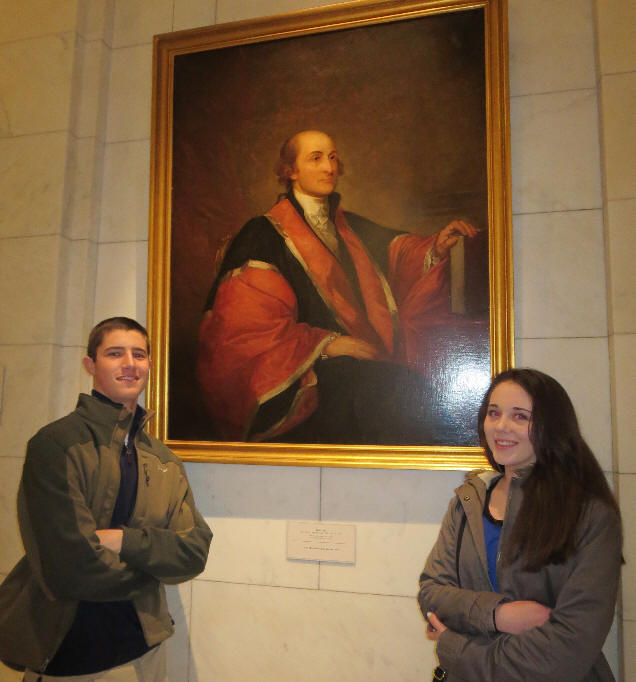
Collin, John Jay and Barbara
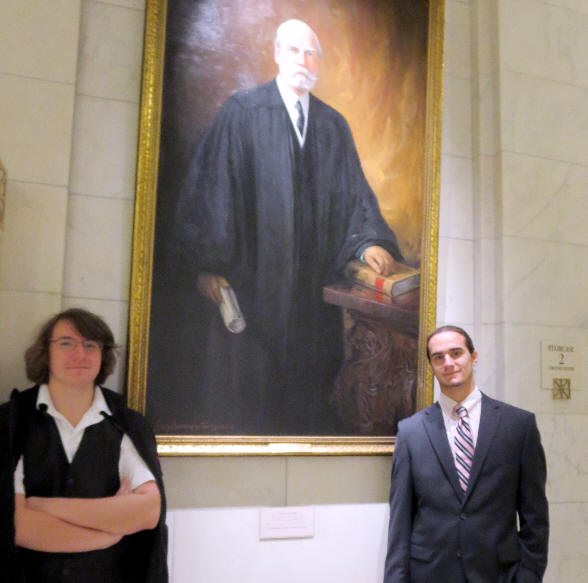
Kevin, Charles Evans Hughes and Charles.
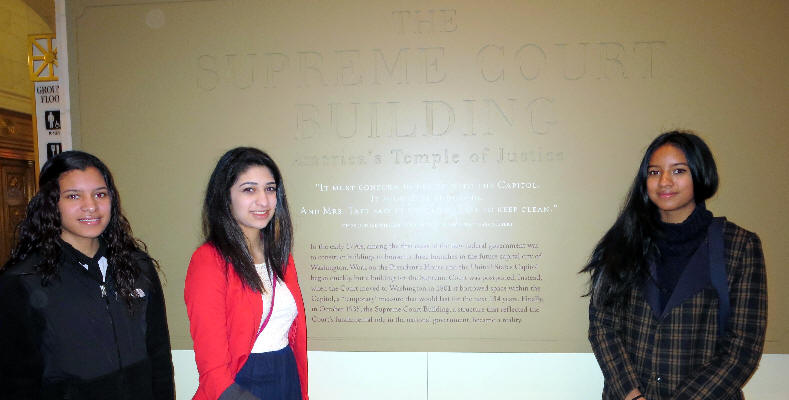
Arianna, Paria and Cierra
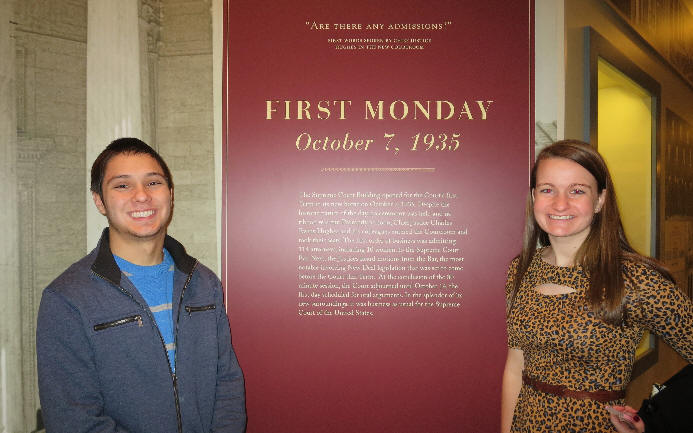
Matt and Amelia
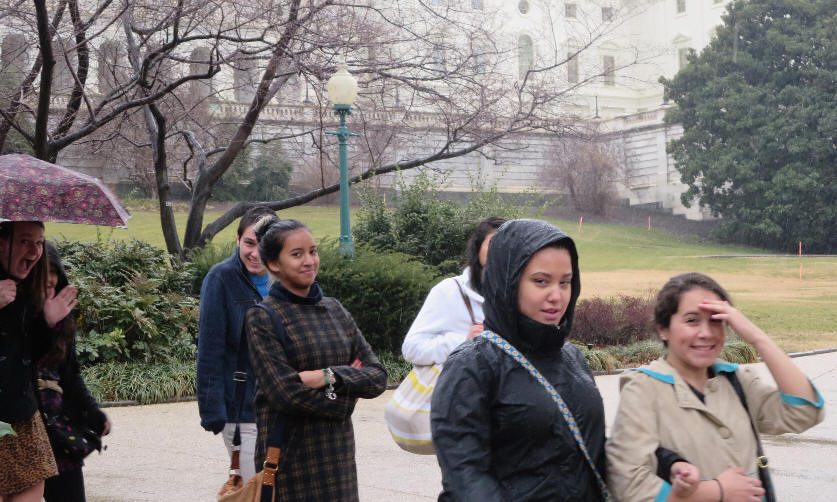
A Hard Rain Did Fall
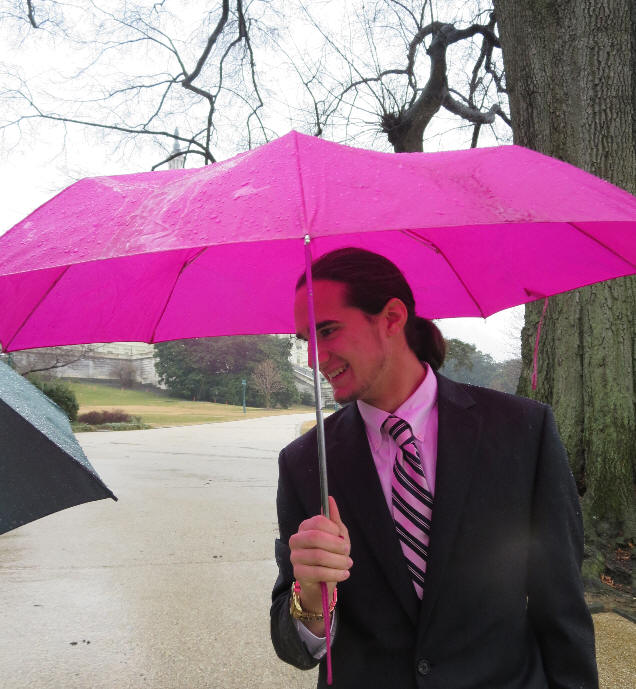
Charles
EXECUTIVE BENEFITS INSURANCE AGENCY v. ARKISON
Facts of the Case
Bellingham Insurance Agency, Inc. (BIA) was a company owned by Nicholas Paleveda
and his wife, Marjorie Ewing.
Shortly before BIA filed for bankruptcy in 2006, the company assigned the
insurance commission from one of its largest clients to Peter Pearce, a
long-time employee.
Additionally, Paleveda used BIA funds to incorporate the Executive Benefits
Insurance Agency, Inc. (EBIA). Pearce then deposited over $100,000 into an
account held jointly by EBIA and another company owned by Paleveda and Ewing.
The Trustee, Peter Arkison, filed a claim against EBIA in the BIA bankruptcy
proceeding.
Arkison alleged fraudulent conveyances and that EBIA, as a successor
corporation, was liable for BIA’s debts. The bankruptcy court granted summary
judgment in favor of the Trustee and the district court affirmed.
On appeal to the U.S. Court of Appeals for the Ninth Circuit, EBIA argued, for
the first time, that the bankruptcy judge’s entry of a final judgment on the
Trustee’s claims was unconstitutional.
The Court of Appeals affirmed the district court’s decision. It held that, while
a bankruptcy court may not decide a fraudulent conveyance claim, it may hear the
claim and make a recommendation for review by a district court.
Additionally, the Court of Appeals determined that EBIA, by failing to object to
the bankruptcy court’s jurisdiction, waived its Seventh Amendment right to a
hearing before an Article III court.
Question
(1)May a bankruptcy judge hear a fraudulent conveyance claim and submit a report
and recommendation to a district court for review?
(2) May a litigant consent to the entry of a final judgment by a non-Article III
bankruptcy judge? And, if so, does the litigant’s failure to object to the
bankruptcy judge’s entry of a final judgment amount to implied consent?
BRANT REVOCABLE TRUST v. UNITED STATES
Facts of the Case
In 1908, the United States granted land, known as a right-of-way (ROW) to the
Hahn’s Peak and Pacific Railway Company to build a 66-mile railway from Laramie,
Wyoming to Colorado. In 1976, the United States granted Fox
Park, Wyoming⎯land
that surrounds the ROW⎯to
Melvin and Lula Brant.
In 1986, a new company, the Wyoming and Colorado Railway Company, acquired the
ROW.
The company operated the ROW until it officially abandoned the land in 2003.
Following the abandonment, the United States sued the Brant Revocable Trust and
other potential property owners under 42 USC 912, a statute governing the
disposition of abandoned or forfeited railroad grants.
The government argued that this statute reverts abandoned ROWs back to the
federal government’s exclusive possession.
The United States sought a judicial order of abandonment and exclusive
possession of the ROW.
The Brant Revocable Trust and property owners filed a countersuit seeking full
possession of the ROW, insofar as it cut through their land. They argued that
the statute only granted an easement to the United States, not full possession.
The district court granted the interest in the ROW to the United States and the
US. Court of Appeals for the Tenth Circuit affirmed.
Question
Did the United States retain an implied ownership interest in the ROW property
after the underlying lands were granted into private ownership?